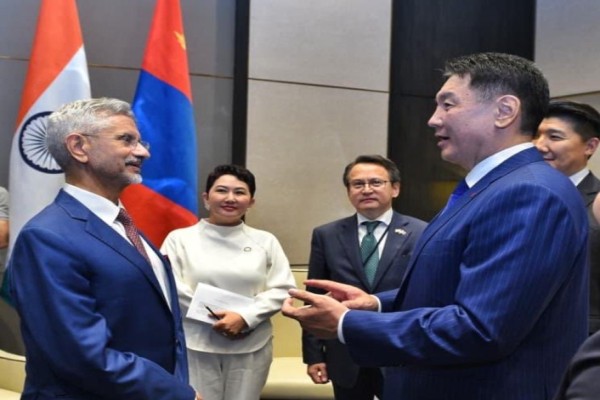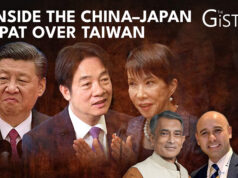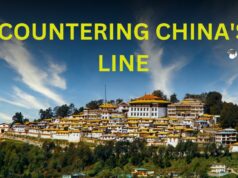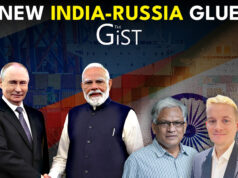
Mongolia’s President Khurelsukh Ukhnaa arrived in India today for a four-day state visit, his first since assuming office.
Invited by President Droupadi Murmu, the visit reflects a growing convergence between New Delhi and Ulaanbaatar across areas including energy, defence, and critical minerals.
The visiting leader, accompanied by cabinet ministers, lawmakers, and business leaders, will hold formal talks with Prime Minister Narendra Modi and also meet Vice President C.P. Radhakrishnan, Defence Minister Rajnath Singh, and External Affairs Minister S. Jaishankar.
Marking 70 years of diplomatic relations, the visit aims to review bilateral progress and set a new strategic direction with agreements expected in mining, digital cooperation, renewable energy, and defence.
The visit highlights deepening policy alignment between Mongolia’s “Third Neighbour” policy—meant to diversify ties beyond China and Russia—and India’s “Act East” policy, which seeks stronger links across East and Central Asia. The Indian Ministry of External Affairs described the two nations as “spiritual neighbours with shared civilisational values and strategic outlooks.”
Agreements are expected to enhance India’s access to Mongolia’s mineral wealth, particularly rare earths and coking coal. Indian firms such as JSW Steel and SAIL are reportedly exploring long-term supply deals from the Tavan Tolgoi mines, seen as vital to India’s clean energy and manufacturing goals.
A centrepiece of economic cooperation is the Dornogobi Oil Refinery project, funded through a $1.7 billion Indian line of credit. Once operational by 2026–27, it is expected to meet over 60% of Mongolia’s fuel demand, reducing dependence on Russian imports.
While Mongolia’s landlocked geography poses logistical hurdles, connectivity is gradually improving. From November, MIAT Mongolian Airlines will begin direct flights to Singapore, enhancing links with India and Southeast Asia. Bilateral trade stood at $110 million in 2024, with both sides seeking to expand cooperation in IT, pharmaceuticals, and digital services.
Defence cooperation has grown through exercises like Nomadic Elephant and Khan Quest, with Mongolia recently appointing its first Defence Attaché to India. India has supplied select equipment such as all-terrain vehicles and cybersecurity systems, though both sides maintain a balanced approach to defence engagement.
On multilateral issues, Mongolia supports India’s bid for a permanent seat at the UN Security Council, while India backs Mongolia’s outreach efforts. Despite Mongolia losing observer status at the Shanghai Cooperation Organization in 2025, the two nations remain aligned on counterterrorism and regional connectivity. Both are active participants in UN peacekeeping and share a commitment to multilateralism.
Beyond strategic issues, the partnership draws strength from shared Buddhist heritage. Over 400 Mongolian monks are studying in India, and cultural exchanges continue through academic collaborations and festivals. The 25th Ganga Nrit dance festival saw participation from over 450 Mongolian delegates.
Educational and medical cooperation are also expanding, with rising numbers of Mongolian patients seeking treatment in India under relaxed visa norms.
President Khurelsukh’s visit is expected to strengthen the partnership with agreements covering long-term mineral exports, green energy collaboration, digital innovation, education, and cultural tourism—laying the foundation for a deeper and more pragmatic India-Mongolia relationship.
- Huma Siddiquihttps://stratnewsglobal.com/author/huma_siddiqui/
- Huma Siddiquihttps://stratnewsglobal.com/author/huma_siddiqui/
- Huma Siddiquihttps://stratnewsglobal.com/author/huma_siddiqui/
- Huma Siddiquihttps://stratnewsglobal.com/author/huma_siddiqui/




